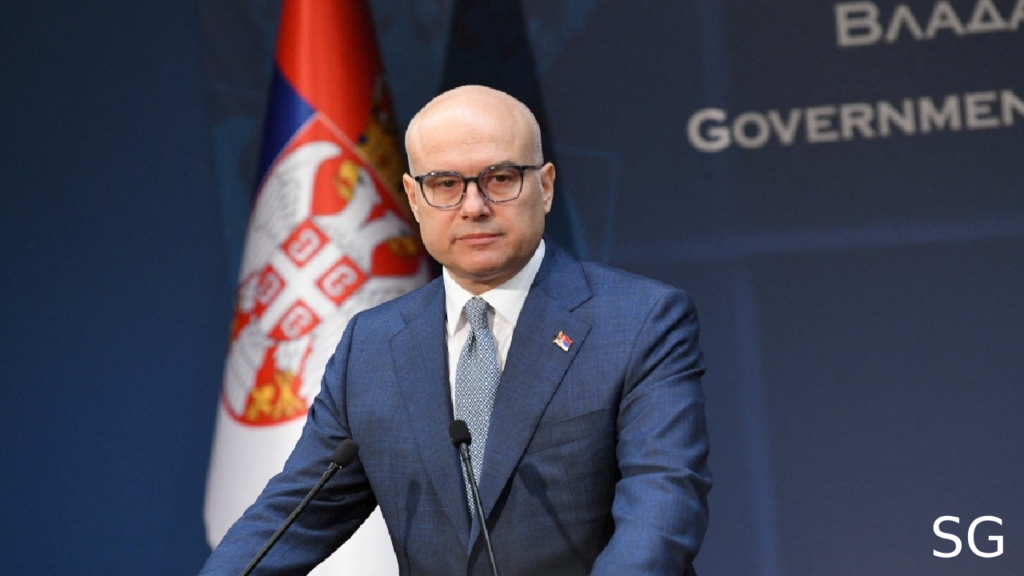Table of Contents

Serbian Prime Minister Resigns Amid Anti-Corruption Protests
Resignation Follows Deadly Incident in Novi Sad
Prime Minister Milos Vucevic resigned on Tuesday, becoming the highest-ranking Serbian official to step down amid nationwide anti-corruption protests. The protests were triggered by a railway station roof collapse in Novi Sad that killed 15 people, leading to widespread calls for accountability.
Vucevic announced his resignation during a news conference, stating, “I opted for this step in order to defuse tensions.” He also confirmed that the mayor of Novi Sad would resign.
Protests Spread Nationwide
Initially centered in Novi Sad, the demonstrations have grown to include thousands in the capital, Belgrade. Protesters, including students, teachers, and workers, have blamed the railway station disaster on systemic corruption within the government led by President Aleksandar Vucic.
Despite earlier resignations by the ministers of construction, transportation, and trade, public anger has not subsided. Protesters have blocked key junctions in Belgrade, demanding more significant changes.
Reports of Violence and Political Accusations
Although the protests have been mostly peaceful, incidents of violence have been reported. Three protesters were attacked in Novi Sad on Monday, with one young woman sustaining head injuries. Demonstrators have blamed members of Vucic’s Serbian Progressive Party (SNS) for the attacks, while Vucevic claimed foreign interference was fueling unrest but provided no evidence.
Mounting Pressure on President Vucic
The protests have increased scrutiny on President Vucic, who faces allegations of corruption, voter manipulation, media suppression, and connections to organized crime. While Vucic and his allies deny the accusations, opposition parties and rights groups argue that his administration is eroding trust in state institutions.
Analysts suggest the protests are unlikely to force Vučić out immediately due to a lack of alternative political leadership. However, the government’s perceived failure to address public demands may prolong unrest.
Calls for Reform and Political Change
The opposition Kreni-Promeni party has proposed an interim government composed of independent experts approved by student leaders. The party has also urged other opposition groups to avoid boycotting elections if they are called.
International Implications
Serbia’s political instability has broader implications due to its strategic relationships with both Russia and the West. As a candidate for EU membership, Serbia is under pressure to demonstrate commitment to democratic reforms and normalize relations with its neighbor Kosovo.
Next Steps
President Vucic is expected to address the nation, potentially outlining his government’s response to the ongoing crisis. Whether his speech will quell or inflame public anger remains to be seen.
“Serbian Prime Minister Resigns Amid Anti-Corruption Protests” “Serbian Prime Minister Resigns Amid Anti-Corruption Protests” “Serbian Prime Minister Resigns Amid Anti-Corruption Protests”